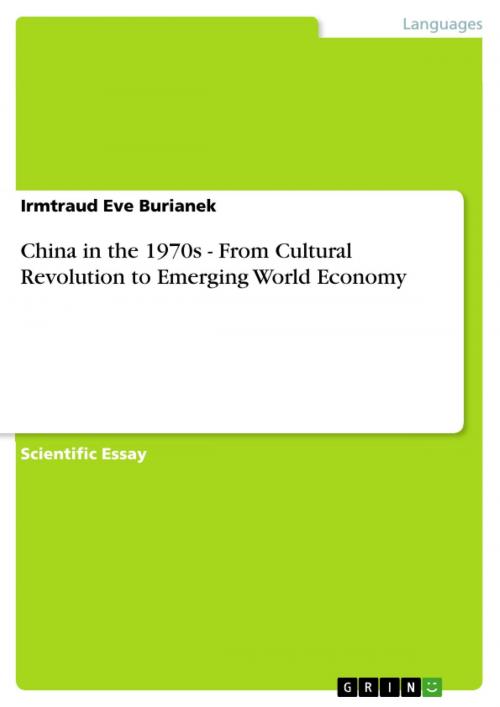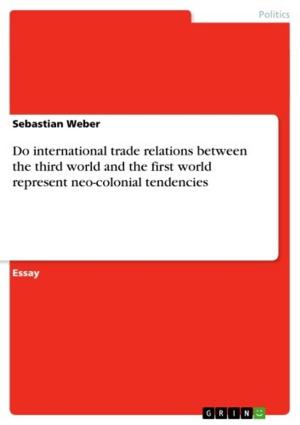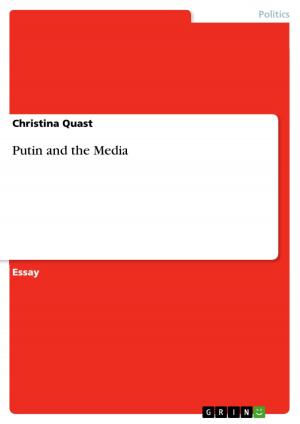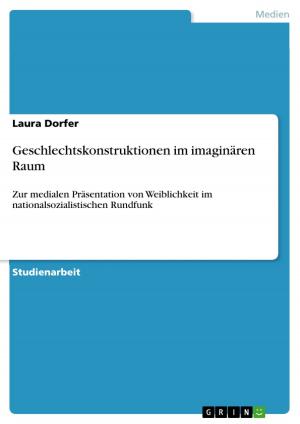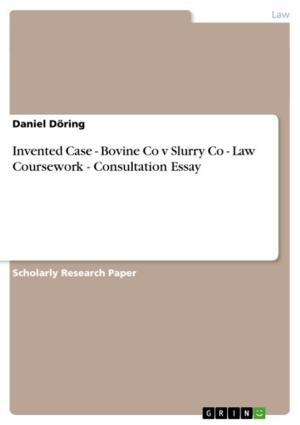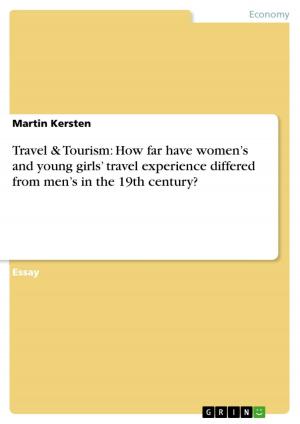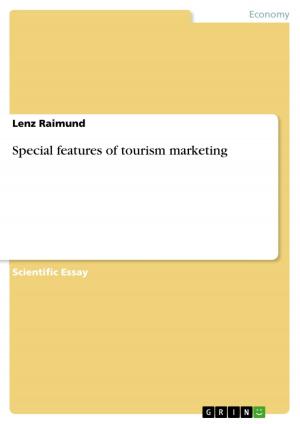China in the 1970s - From Cultural Revolution to Emerging World Economy
From Cultural Revolution to Emerging World Economy
Nonfiction, Reference & Language, Foreign Languages, Chinese| Author: | Irmtraud Eve Burianek | ISBN: | 9783640345915 |
| Publisher: | GRIN Publishing | Publication: | June 12, 2009 |
| Imprint: | GRIN Publishing | Language: | English |
| Author: | Irmtraud Eve Burianek |
| ISBN: | 9783640345915 |
| Publisher: | GRIN Publishing |
| Publication: | June 12, 2009 |
| Imprint: | GRIN Publishing |
| Language: | English |
Scientific Essay from the year 2009 in the subject Orientalism / Sinology - Chinese / China, , course: Private discussions of scholarly work on China, language: English, abstract: The tumultuous decade of the Seventies in China develops from a suppressive phase determined by the Cultural Revolution and the principles of communist dictatorship to its first unexpected opening to the West with Nixon's visit to China in 1972. We will follow China's history from the death of Mao Zedong and Zhou Enlai in 1976, through the turmoil following the arrest of the Gang of Four in October 1976, the reform course of Deng Xiaoping beginning in 1978, the democracy movement, to the deep structural economic reforms with the 'open door' policy in 1980. The Seventies began in China in the dark era of the Cultural Revolution. Mao, despite his position of being the godlike Supreme Leader of China, became aware in the mid Sixties that the pragmatists in the Communist Party were actually running the country. Under the pragmatists, China finally showed improvement in living standards, a more relaxed lifestyle, and greater literary and artistic freedom. But Mao saw exactly this as a threat to his own person and resented the successful party officials up to the leaders in his immediate vicinity. He regarded himself as a Stalin figure. In 1956 Soviet Premier Nikita Khrushchev had denounced Stalin. Mao decided to make a preemptive strike and destroy the man he regarded as 'China's Khrushchev', Liu Shaoqi, as well as Liu's colleague Deng Xiaoping, as well as their followers in the party. Because they were numerous, he came up with a diabolical plan of turning the Chinese against each other in an unprecedented mass campaign of denunciation. Mao appealed to lower officials o criticize and denounce their superiors for betraying the revolution, students to criticize their teachers and professors, workers their supervisors, neighbors their neighbors and young people their elders. One billion people were turned upside down, looking for 'counterrevolutionary' tendencies in each other. This he deceptively termed the 'Cultural Revolution'. For the 'culture' part, Mao involved his wife Jiang Qing. Mao accepted his wife's former career as an actress in Shanghai as a as sufficient base for overseeing China's intellectual and artistic life.
Scientific Essay from the year 2009 in the subject Orientalism / Sinology - Chinese / China, , course: Private discussions of scholarly work on China, language: English, abstract: The tumultuous decade of the Seventies in China develops from a suppressive phase determined by the Cultural Revolution and the principles of communist dictatorship to its first unexpected opening to the West with Nixon's visit to China in 1972. We will follow China's history from the death of Mao Zedong and Zhou Enlai in 1976, through the turmoil following the arrest of the Gang of Four in October 1976, the reform course of Deng Xiaoping beginning in 1978, the democracy movement, to the deep structural economic reforms with the 'open door' policy in 1980. The Seventies began in China in the dark era of the Cultural Revolution. Mao, despite his position of being the godlike Supreme Leader of China, became aware in the mid Sixties that the pragmatists in the Communist Party were actually running the country. Under the pragmatists, China finally showed improvement in living standards, a more relaxed lifestyle, and greater literary and artistic freedom. But Mao saw exactly this as a threat to his own person and resented the successful party officials up to the leaders in his immediate vicinity. He regarded himself as a Stalin figure. In 1956 Soviet Premier Nikita Khrushchev had denounced Stalin. Mao decided to make a preemptive strike and destroy the man he regarded as 'China's Khrushchev', Liu Shaoqi, as well as Liu's colleague Deng Xiaoping, as well as their followers in the party. Because they were numerous, he came up with a diabolical plan of turning the Chinese against each other in an unprecedented mass campaign of denunciation. Mao appealed to lower officials o criticize and denounce their superiors for betraying the revolution, students to criticize their teachers and professors, workers their supervisors, neighbors their neighbors and young people their elders. One billion people were turned upside down, looking for 'counterrevolutionary' tendencies in each other. This he deceptively termed the 'Cultural Revolution'. For the 'culture' part, Mao involved his wife Jiang Qing. Mao accepted his wife's former career as an actress in Shanghai as a as sufficient base for overseeing China's intellectual and artistic life.
